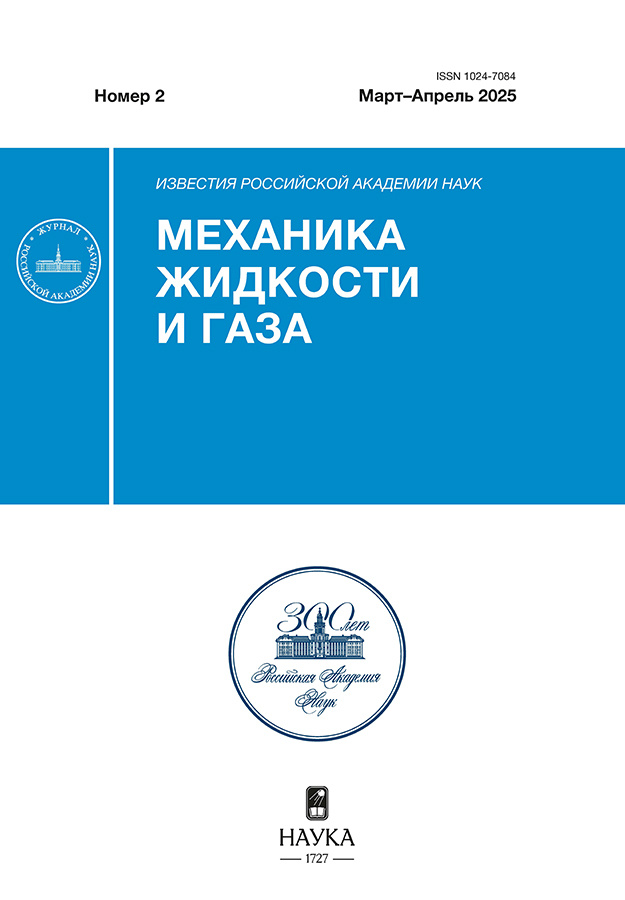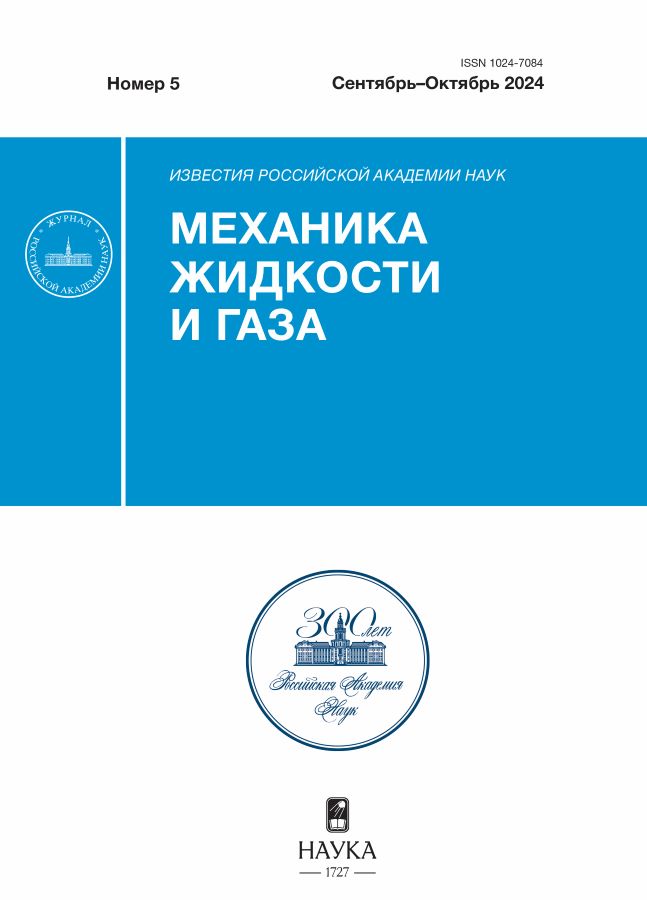Сверхзвуковой поток газа в плоском канале с нормальным тлеющим разрядом в магнитном поле
- Авторы: Суржиков С.Т.1
-
Учреждения:
- Институт проблем механики им. А.Ю. Ишлинского РАН
- Выпуск: № 5 (2024)
- Страницы: 129-144
- Раздел: Статьи
- URL: https://permmedjournal.ru/1024-7084/article/view/681542
- DOI: https://doi.org/10.31857/S1024708424050123
- EDN: https://elibrary.ru/NQFWFM
- ID: 681542
Цитировать
Полный текст
Аннотация
Представлены результаты численного исследования взаимодействия сверхзвукового потока молекулярного азота при скорости М = 2 и 5 с нормальным тлеющим разрядом в магнитном поле при давлении 0.6 Торр. Показано, что магнитное поле может как ускорять, так и замедлять движение токового столба разряда в газовом потоке в зависимости от поляризации вектора индукции магнитного поля. В отсутствие магнитного поля нормальный тлеющий разряд не сносится потоком, а движется с заметно меньшей скоростью, что является следствием влияния пограничных слоев газа вблизи поверхностей и с запаздыванием скорости ионизационных процессов в токовом столбе газоразрядной плазмы по отношению к скорости движения нейтрального газа, пронизывающего разряд.
Полный текст
Об авторах
С. Т. Суржиков
Институт проблем механики им. А.Ю. Ишлинского РАН
Автор, ответственный за переписку.
Email: surg@ipmnet.ru
Россия, Москва
Список литературы
- Гладуш Г.Г., Самохин А.А. Численное исследование шнурования тока на электродах в тлеющем разряде // ПМТФ. 1981. № 5. С.15–23.
- Райзер Ю.П., Суржиков С.Т. Двумерная структура нормального тлеющего разряда и роль диффузии в формировании катодного и анодного пятен // Теплофизика высоких температур. 1988. Т.25. № 3. С.428–435.
- Райзер Ю.П. Физика газового разряда. М.: Наука, 1987. 591 с.
- Суржиков С.Т., Райзер Ю.П. Еще раз о природе эффекта нормальной плотности тока на катоде тлеющего разряда//Письма в ЖТФ. 1987. Т.13. №8. С.452-456
- Surzhikov S.T., Shang J.S. Two-component plasma model for two-dimensional glow discharge in magnetic field //Journal of Computational Physics. 2004. 199. pp.437-464.
- Surzhikov S.T., Shang J.S. Normal Glow Discharge in Axial Magnetic Field// Plasma Sources Sciences and Technology. 2014, Vol.23. 054017.
- Гуськов О.В., Копченов В.И., Липатов И.И., Острась В.Н., Старухин В.П. Процессы торможения сверхзвуковых течений в каналах. М.: Физматлит, 2008. 168 с.
- Surzhikov S.T. Theoretical and Computational Physics of Gas Discharge Phenomena. A Mathematical Introduction, 2nd ed. de Gruyter: Berlin, 2020, 537 p.
- Суржиков С.Т. Диффузионно-дрейфовая модель поверхностного тлеющего разряда в сверхзвуковом потоке газа//Изв. РАН. Механика жидкости и газа. 2024. №1. С.145–162.
- Тамм И.Е. Основы теории электричества. М.: Наука. Гл. ред. физ.-мат. лит. 1989. 504 с.
Дополнительные файлы


























